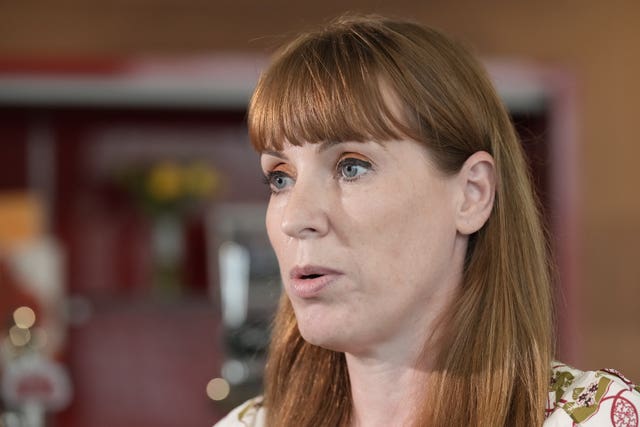Building owners who fail to remove dangerous cladding have been warned “we are after them” and they could face jail as ministers set a 2029 deadline for action.
The Government acknowledged there could be up to 7,000 buildings with dangerous materials which have not yet been identified, while progress on remediation work on high-rises with known issues has been too slow.
The Remediation Acceleration Plan means that, by the end of 2029, all buildings over 59ft (18m) tall with unsafe cladding that are on a Government scheme will have been remediated.
📢 @UKLabour has announced its Cladding Remediation Acceleration Plan.
The "plan" looks extremely disappointing. Innocent leaseholders and residents across the country need and deserve much more.
Our statement 👇🏼#EndOurCladdingScandal pic.twitter.com/l2LwNA7lNf
— End Our Cladding Scandal (@EOCS_Official) December 2, 2024
By then, buildings over 36ft (11m) tall with unsafe cladding will either have been remediated or have a date for completion, with landlords liable for tough penalties if they fail to comply.
Building safety minister Alex Norris told Sky News: “I would want people who own buildings that are watching this, who have not been remediating them, to know we are on them, we are after them, and we want those buildings remediated. And if they don’t, they will feel the force of the law.
“We have a range of powers already, ranging from fines to prison sentences, that can be used in health and safety cases.
“We will use that basket of tools in whatever way with each building to get it resolved. We have committed that that will be the case by the end of this decade.”
Mr Norris acknowledged there are an estimated 4,000-7,000 buildings with flammable cladding which have not yet been identified, more than seven years after the Grenfell Tower disaster which killed 72 people.
Campaigners labelled the Government’s plans as “extremely disappointing” proposals that will “only make a horribly complicated process worse”.

The inquiry into the 2017 Grenfell Tower blaze found that victims, bereaved and survivors were “badly failed”.
The west London tower block was covered in combustible products because of the “systematic dishonesty” of firms that made and sold the cladding and insulation, inquiry chairman Sir Martin Moore-Bick said in September’s report.
End Our Cladding Scandal, a group representing leaseholders affected by unsafe buildings, said they are “still far from a comprehensive solution” on building safety.
The group said in a statement: “Labour’s Remediation Acceleration Plan is extremely disappointing. These proposals will only make a horribly complicated process worse with further layers of bureaucracy.
“The Government may be patting itself on the back by announcing a target date for all high-rise buildings in government-funded schemes to have been remediated; however, the Building Safety Fund first opened for registrations in June 2020, so a target date of nine years from then is underwhelming.”
The group added: “We are still far from a comprehensive solution that will bring about the change innocent leaseholders and residents across the country need and deserve to see.
“There is still far too much uncertainty. Severe penalties will be meaningless without leaseholders and residents knowing for sure when homes will be made fully safe. This ‘plan’ will do little to change that.”
And councils said extra cash could be needed to carry out the work on local government-owned blocks.
Cllr Heather Kidd, chairwoman of the Local Government Association’s safer and stronger communities board, said: “Councils are committed to keeping tenants and residents safe, and are keen to work with Government to drive the pace of remediation.
“However, for local government to carry out enforcement and addressing cladding issues as effectively and quickly as possible, multi-year funding arrangements are needed.”
Deputy Prime Minister Angela Rayner said: “More than seven years on from the Grenfell tragedy, thousands of people have been left living in homes across this country with dangerous cladding.
“The pace of remediation has been far too slow for far too long. We are taking decisive action to right this wrong and make homes safe.
“Our Remediation Acceleration Plan will ensure those responsible for making buildings safe deliver the change residents need and deserve.”




Why are you making commenting on The National only available to subscribers?
We know there are thousands of National readers who want to debate, argue and go back and forth in the comments section of our stories. We’ve got the most informed readers in Scotland, asking each other the big questions about the future of our country.
Unfortunately, though, these important debates are being spoiled by a vocal minority of trolls who aren’t really interested in the issues, try to derail the conversations, register under fake names, and post vile abuse.
So that’s why we’ve decided to make the ability to comment only available to our paying subscribers. That way, all the trolls who post abuse on our website will have to pay if they want to join the debate – and risk a permanent ban from the account that they subscribe with.
The conversation will go back to what it should be about – people who care passionately about the issues, but disagree constructively on what we should do about them. Let’s get that debate started!
Callum Baird, Editor of The National
Comments: Our rules
We want our comments to be a lively and valuable part of our community - a place where readers can debate and engage with the most important local issues. The ability to comment on our stories is a privilege, not a right, however, and that privilege may be withdrawn if it is abused or misused.
Please report any comments that break our rules.
Read the rules here